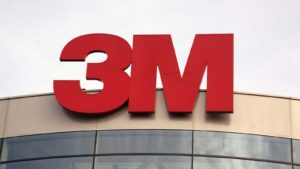The quest for the passive income from a stable investment avenues beckons toward dividend stocks. Enter a realm where industry giants don their strategic armor, ready to navigate the tides of market dynamics and consumer demands.
The stage is set for an enthralling exploration of seven passive income juggernauts. Each is an emblem of innovation and resilience in their respective domains.
These passive income plays offer investors a panoramic view of the dividend stock landscape in the ever-evolving market of 2024.
Pfizer (PFE)

Pfizer (NYSE:PFE) is a passive income stock that has vast market potential and unmet medical needs that the company aims to address.
For instance, an estimated 80 million adults are eligible for RSV vaccination in the US alone, which shows a significant market size for ABRYSVO. The additional market potential of maternal immunization further enhances its revenue prospects by protecting both older adults and infants with one vaccine, indicating a competitive advantage.
Similarly, the oral calcitonin gene-related peptides in the migraine market suggest a high unmet need, with potential market dominance projected to reach up to 40%.
The substantial difference between Triptans and oral CGRP prescriptions signifies a considerable opportunity for growth in the migraine treatment market. It highlights Pfizer’s potential to capture a larger market share.
In the case of sickle cell disease, Pfizer addresses a significant burden of illness affecting an estimated 12 million people globally. This represents Pfizer’s focus on addressing substantial market opportunities and unmet medical needs across various demographics and therapeutic areas. Therefore, this edge positions the company for continued growth and market leadership.
AT&T (T)

AT&T (NYSE:T) is an old-school passive income stock. Its deliberate investment in 5G technology has been a cornerstone of its growth strategy.
The company’s focus on expanding its 5G network infrastructure is a significant indicator of its forward-looking approach and market adaptability.
Notably, AT&T aims to reach over 200 million people with mid-band 5G spectrum by the end of 2023. The goal represents the company’s proactive stance in providing next-generation connectivity to a broad consumer base. AT&T’s aggressive 5G rollout puts them in a competitive position to capture a significant market share.
Finally, the investment in 5G technology isn’t merely about expanding coverage but also about addressing the increasing data demands of consumers. By providing best-in-class 5G solutions, AT&T caters to existing customer needs and stays ahead of the curve in meeting future data consumption patterns.
Johnson & Johnson (JNJ)

Johnson & Johnson’s (NYSE:JNJ) passive income strength lies in its diversified portfolio, spanning the innovative medicine and MedTech segments.
For instance, in Q3 2023, within the innovative medicine segment, sales totaled $13.9 billion, reflecting a 5.1% increase driven by key brands.
These products exhibited commendable growth rates ranging from 15.8% to 27%. Hence, these leads emphasize the company’s capacity to innovate and capitalize on market demand for specific therapeutic categories.
Similarly, the MedTech segment reported sales of $7.5 billion, marking a robust 10% increase. Advancements across platforms such as electrophysiology, vision, and orthopedics propelled this growth. The segment’s diversification across medical devices and technological advancements represents Johnson & Johnson’s focus on consistent value growth.
The increase in topline was multifaceted, supported by solid growth rates within specific geographic markets. Lastly, the US market experienced a substantial 11.1% increase in sales, driving a significant portion of the company’s overall growth.
Procter & Gamble (PG)

Considering the size of its top line, Procter & Gamble’s (NYSE:PG) attainment of a 7% increase in organic sales during Q1 fiscal 2024 signifies a robust performance from this passive income stock.
This growth indicates the company’s strong market positioning and consumer demand for its products. It also represents effective strategies in pricing, product mix, and volume management.
Fundamentally, P&G’s progress in driving growth across all 10 product categories signifies its diversified offerings’ resilience and market acceptance. Certain segments, including home care, personal healthcare, and others, exhibited robust growth rates ranging from double digits to mid-singles.
Despite challenges faced in Greater China, P&G showcased significant organic sales growth in five out of seven regions. The US market grew by 7%, while Europe’s focus markets recorded a substantial 15% growth rate. Therefore, this expansion highlights the effectiveness of its localized strategies that may support its financial performance over the long term.
Verizon (VZ)

Verizon (NYSE:VZ) has consistent growth in broadband subscribers, with over 400K new subscribers for four consecutive quarters (as of Q3 2023). This growth signifies its fundamental leads in the broadband market. Also, this growth is driven by the company’s focus on providing quality service, including the popular Fixed Wireless Access (FWA) offering.
A substantial 72K Internet net increase adds to the Fios segment. It indicates Verizon’s competitive strength and the continued appeal of its services. Similarly, Verizon has made progress in achieving sequential and year-over-year improvements in postpaid phone net adds. This progress showcases its effectiveness in customer acquisition without resorting to aggressive promotional tactics. The company’s focus on providing customers with personalized experiences exemplifies offerings like myPlan. Thus, these offerings increase customer additions and enhance average revenue per account (ARPA).
Finally, Verizon Business Group has consistently grown, adding 151K phone net in Q3. These increase the company’s reliability in delivering connectivity solutions to various customer segments. Fundamentally, the company’s appeal to businesses, governments, and enterprises signals its market strength.
3M (MMM)

3M’s (NYSE:MMM) performance across its diverse business segments provides its strategic strengths.
For instance, in Q3 2023, Safety and Industrial’s operating margins of 25.7% and adjusted sales of $2.8 billion, despite experiencing organic declines, represent effective cost management.
Transportation and Electronics, with operating margins of 26.3% and sales of $1.9 billion, displayed robust margin expansion despite challenges in the electronics market.
Overall, the ability to sustain margins amid market fluctuations indicates 3 M’s agility in implementing strategies to offset challenges, capitalize on strengths, and maintain profitability across its diverse portfolio of businesses.
Lowe’s (LOW)

Lowe’s (NYSE:LOW) holds a dominant position as the market leader in appliances within the US, accounting for 14% of its sales. The third quarter of 2023 highlights that the industry-wide pullback in appliance sales affects Lowe’s significantly because of its substantial market share in this category.
This market leadership gives Lowe’s a unique advantage and represents a fundamental strength that could support rapid growth potential. Despite declining appliance sales, Lowe’s might leverage its position and implement strategies to capture more market share or stimulate demand.
The proportion of revenue derived from DIY customers (75%) and professionals (25%) is crucial. When the DIY segment becomes cautious, it disproportionately affects Lowe’s. Conversely, despite the DIY decline, Lowe’s maintained positive sales comps in the Pro segment.
Thus, this diversified customer base cushions during fluctuations in consumer behavior, thereby mitigating risks associated with specific market shifts.
As of this writing, Yiannis Zourmpanos held long positions in PFE, T, VZ, and MMM. The opinions expressed in this article are those of the writer, subject to the InvestorPlace.com Publishing Guidelines.
